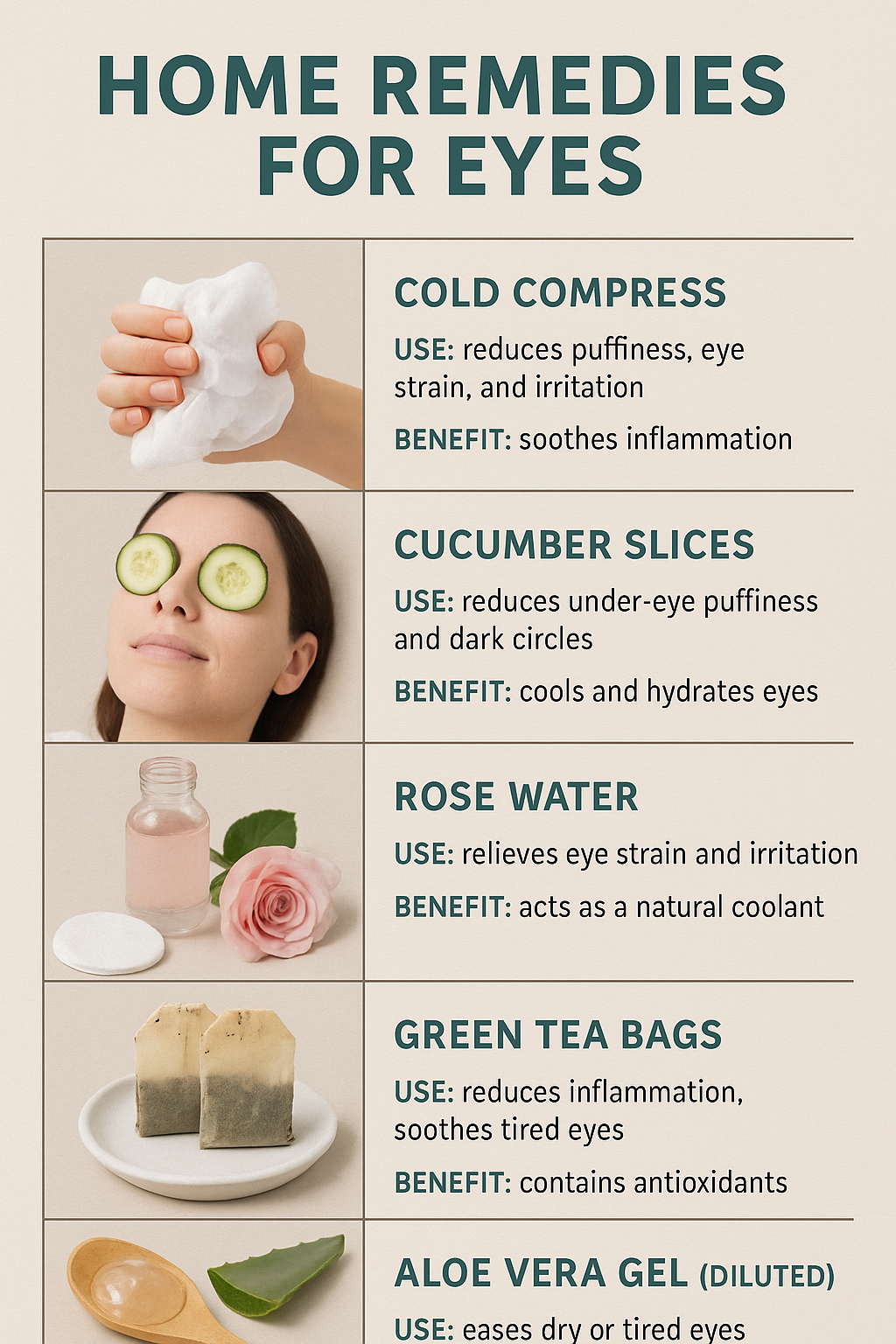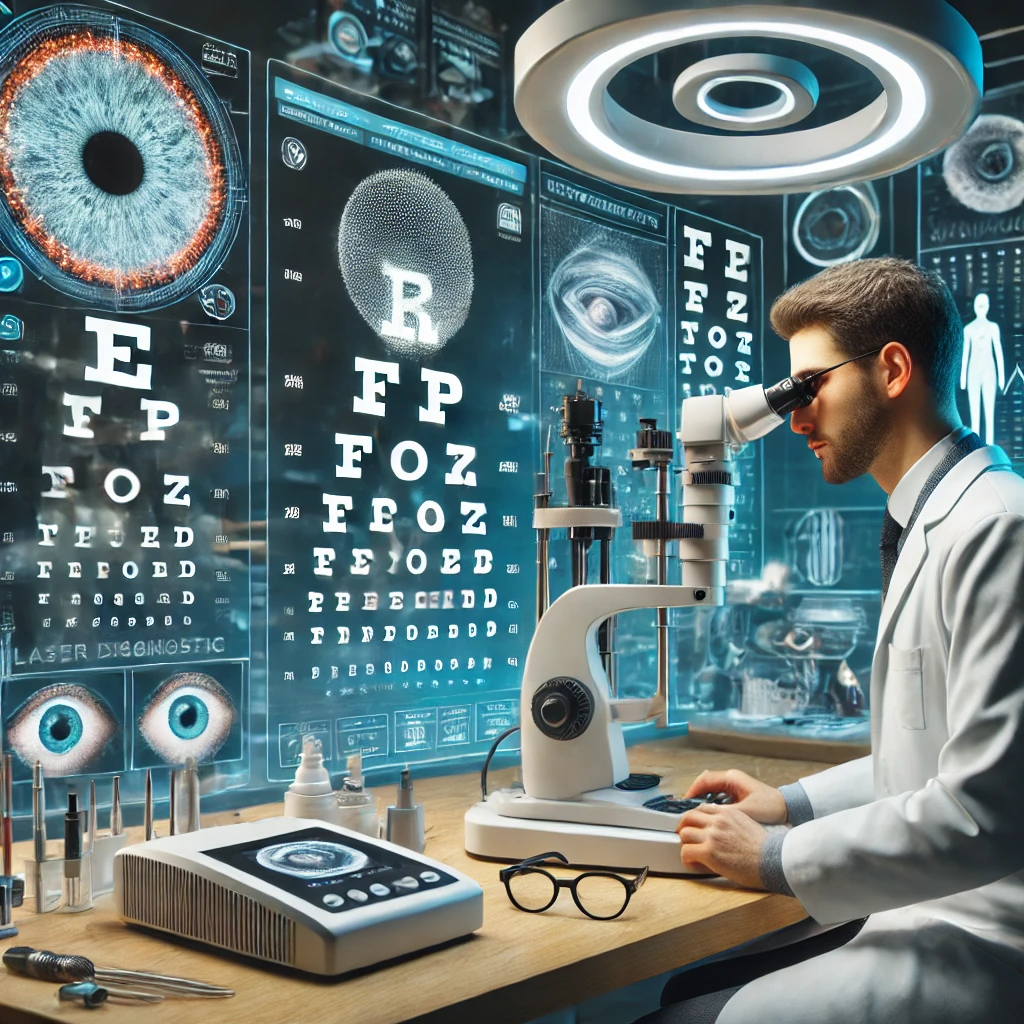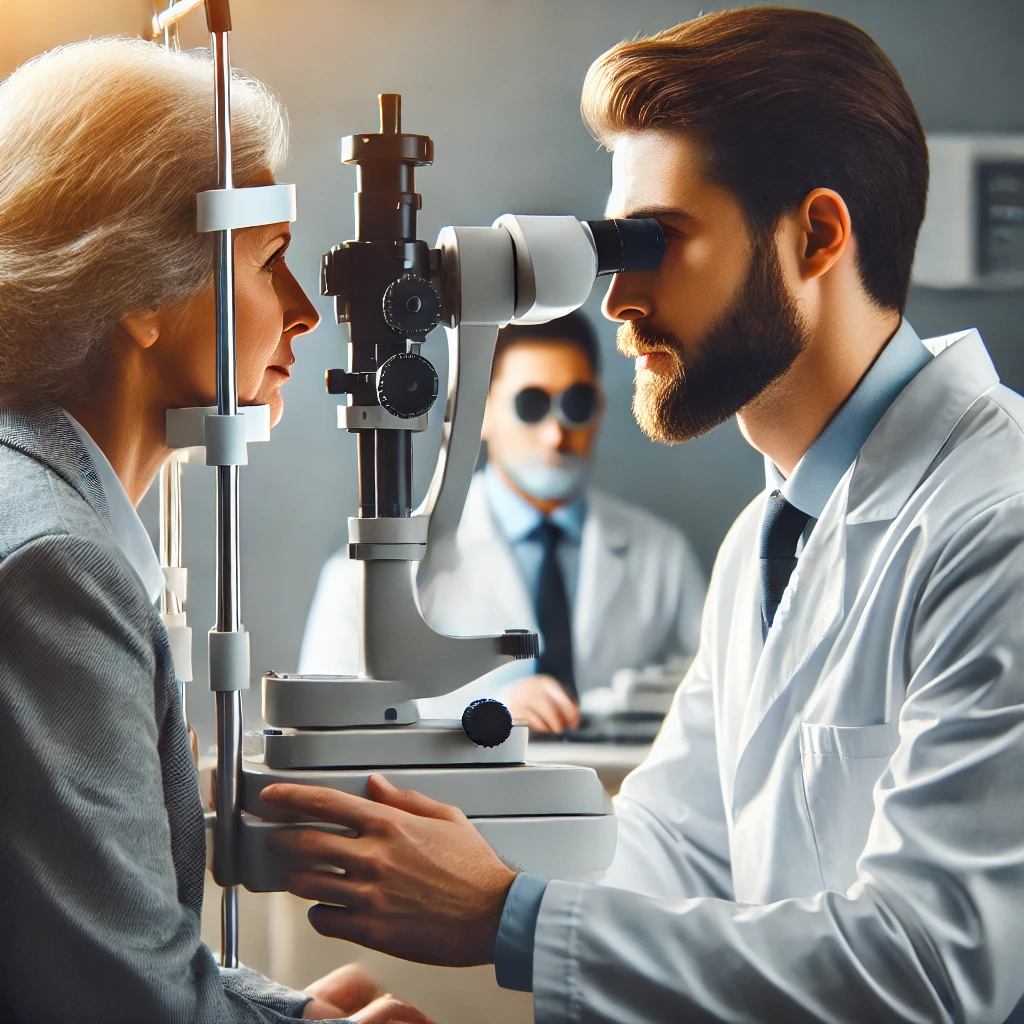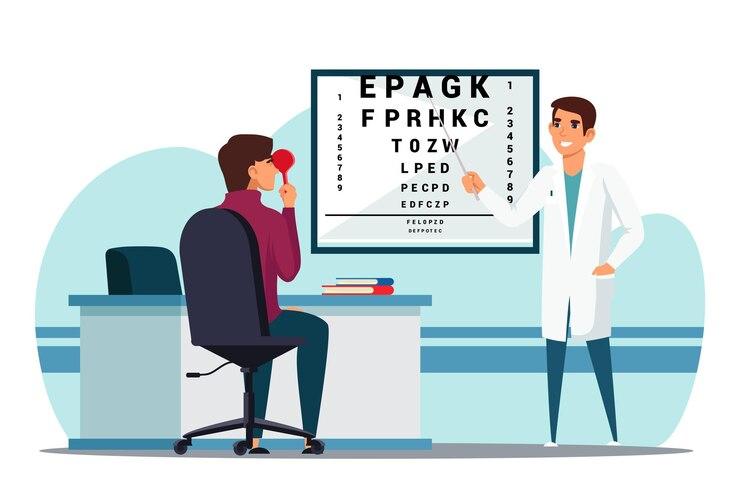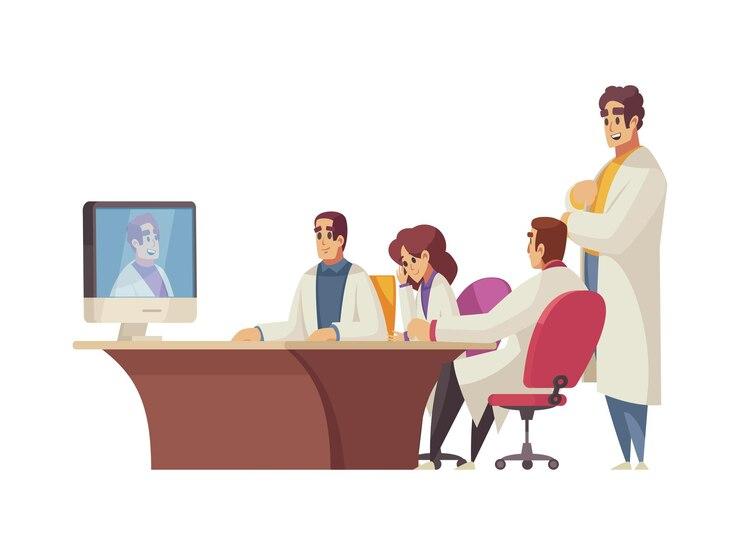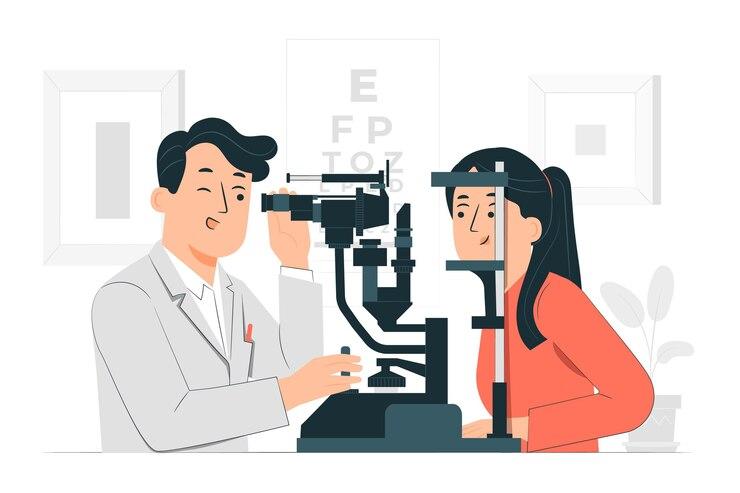Hello, my name is Dr. Pooja, and I specialize in ophthalmology. I run a small clinic dedicated to providing personalized care and improving vision health for my patients. My goal is to help people see the world more clearly and maintain healthy eyesight through comprehensive eye care services.
-
11 Posts
-
7 Photos
-
0 Videos
-
14/05/1990
-
Followed by 72 people
Recent Updates
-
👂👃🗣 The Silent Side of ENT: What People Often Miss
Most people think of ENT doctors as the “sore throat” or “ear wax” specialists.
But here’s what your Ear, Nose & Throat can actually reveal about your overall health
Frequent Ear Infections in Adults?
Could be linked to undiagnosed diabetes or immune weakness.
Sudden Hearing Loss in One Ear?
A red flag for early acoustic neuroma (a benign brain tumor) if ignored.
Chronic Snoring?
Not just a sleep issue — it’s a gateway to heart disease, stroke, and high BP through sleep apnea.
Loss of Smell (anosmia)?
Sometimes the first sign of neurological conditions like Parkinson’s or post-viral complications.
Persistent Hoarseness (>2 weeks)?
Could be an early sign of laryngeal cancer, not “just a throat infection.”
💡 ENT is the hidden intersection of neurology, cardiology, oncology, and pediatrics.
It’s not just about clearing blockages — it’s about uncovering clues your body whispers before it screams.👂👃🗣 The Silent Side of ENT: What People Often Miss Most people think of ENT doctors as the “sore throat” or “ear wax” specialists. But here’s what your Ear, Nose & Throat can actually reveal about your overall health 👇 Frequent Ear Infections in Adults? Could be linked to undiagnosed diabetes or immune weakness. Sudden Hearing Loss in One Ear? A red flag for early acoustic neuroma (a benign brain tumor) if ignored. Chronic Snoring? Not just a sleep issue — it’s a gateway to heart disease, stroke, and high BP through sleep apnea. Loss of Smell (anosmia)? Sometimes the first sign of neurological conditions like Parkinson’s or post-viral complications. Persistent Hoarseness (>2 weeks)? Could be an early sign of laryngeal cancer, not “just a throat infection.” 💡 ENT is the hidden intersection of neurology, cardiology, oncology, and pediatrics. It’s not just about clearing blockages — it’s about uncovering clues your body whispers before it screams.0 Comments 0 Shares 3K Views
 9
9 Please log in to like, share and comment!
Please log in to like, share and comment! -
👁️ 1. Cold Compress
Use: Reduces puffiness, eye strain, and irritation.
Benefit: Soothes inflammation and constricts blood vessels.
How: Wrap a clean cloth around ice or chilled gel pack and apply to closed eyes for 10–15 minutes.
👁️ 2. Cucumber Slices
Use: Reduces under-eye puffiness and dark circles.
Benefit: High in water and antioxidants that cool and hydrate the eyes.
How: Place chilled cucumber slices on eyes for 10–15 minutes.
👁️ 3. Rose Water
Use: Relieves eye strain and irritation.
Benefit: Acts as a natural coolant and cleanser.
How: Use as eye drops (only if sterile) or dab gently on closed eyes with a cotton pad.
👁️ 4. Green Tea Bags
Use: Reduces inflammation and soothes tired eyes.
Benefit: Contains antioxidants and tannins.
How: Chill used green tea bags and place over eyes for 10–15 minutes.
👁️ 5. Aloe Vera Gel (diluted)
Use: Eases dry or tired eyes.
Benefit: Contains anti-inflammatory and hydrating properties.
How: Mix pure aloe vera gel with water and apply gently around the eyes (do not get into the eyes).👁️ 1. Cold Compress Use: Reduces puffiness, eye strain, and irritation. Benefit: Soothes inflammation and constricts blood vessels. How: Wrap a clean cloth around ice or chilled gel pack and apply to closed eyes for 10–15 minutes. 👁️ 2. Cucumber Slices Use: Reduces under-eye puffiness and dark circles. Benefit: High in water and antioxidants that cool and hydrate the eyes. How: Place chilled cucumber slices on eyes for 10–15 minutes. 👁️ 3. Rose Water Use: Relieves eye strain and irritation. Benefit: Acts as a natural coolant and cleanser. How: Use as eye drops (only if sterile) or dab gently on closed eyes with a cotton pad. 👁️ 4. Green Tea Bags Use: Reduces inflammation and soothes tired eyes. Benefit: Contains antioxidants and tannins. How: Chill used green tea bags and place over eyes for 10–15 minutes. 👁️ 5. Aloe Vera Gel (diluted) Use: Eases dry or tired eyes. Benefit: Contains anti-inflammatory and hydrating properties. How: Mix pure aloe vera gel with water and apply gently around the eyes (do not get into the eyes).0 Comments 0 Shares 4K Views 16
16
-
Ophthalmology: Enhancing Vision, Improving Lives
Ophthalmology is the branch of medicine focused on the diagnosis, treatment, and prevention of eye disorders and diseases. It covers a wide range of conditions, including cataracts, glaucoma, retinal disorders, and refractive errors. With advancements in technology, modern ophthalmology offers innovative solutions such as laser treatments, minimally invasive surgeries, and AI-powered diagnostics.
Benefits of Ophthalmology
Improved Vision: Corrects refractive errors and prevents vision loss.
Early Disease Detection: Helps diagnose conditions like glaucoma and diabetic retinopathy before they worsen.
Advanced Treatments: Offers cutting-edge solutions like LASIK, cataract surgery, and retinal procedures.
Better Quality of Life: Enhances overall well-being by preserving and restoring eyesight.
Key Features of Ophthalmology
Comprehensive Eye Care: Covers everything from routine eye exams to complex surgeries.
State-of-the-Art Technology: Includes laser-assisted surgeries, AI-based diagnostics, and robotic-assisted procedures.
Preventive Care: Encourages early screenings for age-related and hereditary eye diseases.
Multidisciplinary Approach: Integrates optometry, neurology, and systemic disease management for holistic care.
With continuous advancements, ophthalmology plays a crucial role in maintaining optimal eye health and improving the lives of millions worldwide.
#Ophthalmology #EyeCare #VisionHealth #AdvancedEyeCare #EyeExams #LaserTreatment #RetinaCare #EyeHealth #MedicalInnovation #HealthcareTechnologyOphthalmology: Enhancing Vision, Improving Lives Ophthalmology is the branch of medicine focused on the diagnosis, treatment, and prevention of eye disorders and diseases. It covers a wide range of conditions, including cataracts, glaucoma, retinal disorders, and refractive errors. With advancements in technology, modern ophthalmology offers innovative solutions such as laser treatments, minimally invasive surgeries, and AI-powered diagnostics. Benefits of Ophthalmology Improved Vision: Corrects refractive errors and prevents vision loss. Early Disease Detection: Helps diagnose conditions like glaucoma and diabetic retinopathy before they worsen. Advanced Treatments: Offers cutting-edge solutions like LASIK, cataract surgery, and retinal procedures. Better Quality of Life: Enhances overall well-being by preserving and restoring eyesight. Key Features of Ophthalmology Comprehensive Eye Care: Covers everything from routine eye exams to complex surgeries. State-of-the-Art Technology: Includes laser-assisted surgeries, AI-based diagnostics, and robotic-assisted procedures. Preventive Care: Encourages early screenings for age-related and hereditary eye diseases. Multidisciplinary Approach: Integrates optometry, neurology, and systemic disease management for holistic care. With continuous advancements, ophthalmology plays a crucial role in maintaining optimal eye health and improving the lives of millions worldwide. #Ophthalmology #EyeCare #VisionHealth #AdvancedEyeCare #EyeExams #LaserTreatment #RetinaCare #EyeHealth #MedicalInnovation #HealthcareTechnology0 Comments 0 Shares 8K Views
 20
20
-
Benefits of Ophthalmology
Ophthalmology is a specialized branch of medicine that focuses on the diagnosis, treatment, and prevention of eye diseases and disorders. Here are some key benefits of ophthalmology:
Improved Vision and Quality of Life: Ophthalmologists play a crucial role in improving vision, which significantly enhances the quality of life. Through corrective treatments such as LASIK, cataract surgery, and prescription glasses, patients can achieve clear vision.
Early Detection of Systemic Health Issues: The eyes can provide insights into overall health. Ophthalmologists can detect early signs of systemic conditions like diabetes, hypertension, and even brain tumors through a comprehensive eye exam.
Prevention and Management of Eye Diseases: Regular eye exams help in the prevention and early detection of conditions such as glaucoma, macular degeneration, and diabetic retinopathy, which can lead to blindness if left untreated.
Minimally Invasive Treatments: With advancements in ophthalmology, many eye conditions can be treated with minimally invasive procedures, reducing recovery time and risks compared to traditional surgeries.
Restoration of Vision: Ophthalmologists provide surgical interventions such as corneal transplants or cataract surgeries, which can restore or significantly improve vision for patients with serious eye conditions.
Comprehensive Eye Care: Ophthalmologists provide both medical and surgical care, ensuring a comprehensive approach to eye health. Whether it's treating an eye infection, performing surgery, or offering post-operative care, ophthalmologists offer a range of services to maintain healthy vision.
Benefits of Ophthalmology Ophthalmology is a specialized branch of medicine that focuses on the diagnosis, treatment, and prevention of eye diseases and disorders. Here are some key benefits of ophthalmology: Improved Vision and Quality of Life: Ophthalmologists play a crucial role in improving vision, which significantly enhances the quality of life. Through corrective treatments such as LASIK, cataract surgery, and prescription glasses, patients can achieve clear vision. Early Detection of Systemic Health Issues: The eyes can provide insights into overall health. Ophthalmologists can detect early signs of systemic conditions like diabetes, hypertension, and even brain tumors through a comprehensive eye exam. Prevention and Management of Eye Diseases: Regular eye exams help in the prevention and early detection of conditions such as glaucoma, macular degeneration, and diabetic retinopathy, which can lead to blindness if left untreated. Minimally Invasive Treatments: With advancements in ophthalmology, many eye conditions can be treated with minimally invasive procedures, reducing recovery time and risks compared to traditional surgeries. Restoration of Vision: Ophthalmologists provide surgical interventions such as corneal transplants or cataract surgeries, which can restore or significantly improve vision for patients with serious eye conditions. Comprehensive Eye Care: Ophthalmologists provide both medical and surgical care, ensuring a comprehensive approach to eye health. Whether it's treating an eye infection, performing surgery, or offering post-operative care, ophthalmologists offer a range of services to maintain healthy vision.0 Comments 0 Shares 6K Views

 15
15
-
-
𝑷𝒓𝒊𝒗𝒂𝒕𝒆 𝑰𝒏𝒗𝒊𝒕𝒆 𝒕𝒐 "𝑯𝒐𝒘 𝒕𝒐 𝑺𝒕𝒂𝒓𝒕 𝒂𝒏 IUI Clinic" 𝑾𝒆𝒃𝒊𝒏𝒂𝒓
𝑮𝒚𝒏𝒆𝒄𝒐𝒍𝒐𝒈𝒊𝒔𝒕𝒔, 𝒍𝒆𝒕’𝒔 𝒕𝒂𝒍𝒌 𝒂𝒃𝒐𝒖𝒕 𝒅𝒓𝒆𝒂𝒎𝒔
You’ve seen it before:
The couple sitting in your consultation room, eyes filled with hope.
The patient asking, “Doctor, is there any way I can still become a parent?”
And you’ve probably thought, “I wish I could do more for them.”
Here’s your chance to do just that.
On 𝗡𝗼𝘃𝗲𝗺𝗯𝗲𝗿 𝟯𝟬𝘁𝗵, I’m hosting an exclusive webinar:
𝗛𝗼𝘄 𝘁𝗼 𝗦𝘁𝗮𝗿𝘁 𝗬𝗼𝘂𝗿 𝗢𝘄𝗻 𝗜𝗨𝗜 𝗖𝗹𝗶𝗻𝗶𝗰?
Get the tools, licenses, and skills you need to bring IUI services to your clinic.
Bonus? I’ll show you how tools like Androwash make sperm washing simpler and more efficient—setting you up for success from Day 1.
But there’s a catch.
This isn’t a public event. I’m keeping it private for my DseideHealthcare Network network of gynecologists and healthcare professionals who truly care about making a difference.
𝗜𝗻𝘁𝗲𝗿𝗲𝘀𝘁𝗲𝗱?
Like this post.
Comment 𝗜𝗨𝗜𝗖𝗟𝗜𝗡𝗜𝗖 below.
I’ll personally send you an invite via DM.
Spots are limited, and so is time.
Let’s make this happen together.0 Comments 0 Shares 4K Views 14
14
-
Ophthalmology is a highly specialized field of medicine focused on the comprehensive care of the eyes and visual system. Ophthalmologists undergo extensive medical training, which includes medical school, a residency in ophthalmology, and often additional fellowship training in subspecialties like cornea, retina, glaucoma, paediatric ophthalmology, and oculoplastics.
This discipline covers a wide range of conditions, from routine vision correction with glasses or contact lenses to the management of serious eye diseases. Common procedures performed by ophthalmologists include cataract surgery, LASIK for vision correction, and retinal surgeries for conditions like retinal detachment.
Ophthalmologists are also equipped to manage eye-related symptoms of systemic diseases, such as diabetic retinopathy, which can occur in individuals with diabetes, and hypertension-related changes in the eye. Research and technological advancements in ophthalmology, such as the use of artificial intelligence in diagnosing eye conditions and the development of advanced intraocular lenses, are continuously improving patient outcomes.
In addition to treating eye diseases, ophthalmologists emphasize the importance of regular eye exams for early detection of issues that can affect vision and overall health.
#opthomology #eyecareOphthalmology is a highly specialized field of medicine focused on the comprehensive care of the eyes and visual system. Ophthalmologists undergo extensive medical training, which includes medical school, a residency in ophthalmology, and often additional fellowship training in subspecialties like cornea, retina, glaucoma, paediatric ophthalmology, and oculoplastics. This discipline covers a wide range of conditions, from routine vision correction with glasses or contact lenses to the management of serious eye diseases. Common procedures performed by ophthalmologists include cataract surgery, LASIK for vision correction, and retinal surgeries for conditions like retinal detachment. Ophthalmologists are also equipped to manage eye-related symptoms of systemic diseases, such as diabetic retinopathy, which can occur in individuals with diabetes, and hypertension-related changes in the eye. Research and technological advancements in ophthalmology, such as the use of artificial intelligence in diagnosing eye conditions and the development of advanced intraocular lenses, are continuously improving patient outcomes. In addition to treating eye diseases, ophthalmologists emphasize the importance of regular eye exams for early detection of issues that can affect vision and overall health. #opthomology #eyecare0 Comments 0 Shares 2K Views 7
7
-
Benefits of ophthalmology
Comprehensive Eye Care: Full range of eye health services.
Early Detection: Identifies conditions like glaucoma and cataracts early.
Specialized Surgeries: Performs procedures like LASIK and cataract surgery.
Complex Conditions: Manages issues like diabetic retinopathy and corneal transplants.
Vision Correction: Improves vision with lenses or surgery.
Trauma Care: Treats eye injuries to prevent vision loss.
Preventive Care: Helps maintain long-term eye health.
#opthomologyBenefits of ophthalmology Comprehensive Eye Care: Full range of eye health services. Early Detection: Identifies conditions like glaucoma and cataracts early. Specialized Surgeries: Performs procedures like LASIK and cataract surgery. Complex Conditions: Manages issues like diabetic retinopathy and corneal transplants. Vision Correction: Improves vision with lenses or surgery. Trauma Care: Treats eye injuries to prevent vision loss. Preventive Care: Helps maintain long-term eye health. #opthomology0 Comments 0 Shares 2K Views
 12
12
-
Comprehensive care for ear, nose, throat, and head conditions.
Improves quality of life by addressing vital functions like hearing, breathing, and swallowing.
Minimally invasive procedures for quicker recovery.
Treats all age groups, from children to seniors.
Specialization options in areas like otology, rhinology, and laryngology.
High demand due to the wide range of treatable conditions.Comprehensive care for ear, nose, throat, and head conditions. Improves quality of life by addressing vital functions like hearing, breathing, and swallowing. Minimally invasive procedures for quicker recovery. Treats all age groups, from children to seniors. Specialization options in areas like otology, rhinology, and laryngology. High demand due to the wide range of treatable conditions.0 Comments 0 Shares 2K Views 8
8
-
1. Dry Eyes
Warm Compress: Place a warm cloth over closed eyes for 5-10 minutes to soothe and stimulate tears.
Omega-3 Foods: Eat fish, flaxseeds, and walnuts to improve tear quality.
2. Eye Strain
20-20-20 Rule: Look at something 20 feet away for 20 seconds every 20 minutes during screen use.
Cucumber Slices: Place cold cucumber slices on eyes to refresh and relax them.
3. Conjunctivitis (Pink Eye)
Cold Compress: Use a clean, cold cloth on the eye to reduce itching.
Green Tea Bags: Place cooled green tea bags on closed eyes to reduce swelling.
4. Puffy Eyes
Cold Spoons: Press chilled spoons gently on closed eyes to reduce puffiness.
Aloe Vera: Apply aloe vera gel around the eyes to soothe and reduce puffiness.
5. Stye
Warm Compress: Use a warm compress on the stye for 10-15 minutes, 3-4 times a day.
Turmeric Paste: Apply a turmeric paste around the stye (not in the eye) to reduce swelling.
6. Itchy Eyes
Cold Compress: Use a cold compress for quick relief from itching.
Chamomile Tea Bags: Place cold chamomile tea bags on the eyes to soothe them.
7. Red Eyes
Rose Water: Put a few drops of rose water in the eyes to reduce redness.
Cucumber Slices: Use chilled cucumber slices to cool and soothe eyes.
8. Dark Circles
Almond Oil: Massage almond oil under the eyes before bed.
Tomato & Lemon Juice: Apply a mix of tomato and lemon juice around the eyes to lighten dark circles.1. Dry Eyes Warm Compress: Place a warm cloth over closed eyes for 5-10 minutes to soothe and stimulate tears. Omega-3 Foods: Eat fish, flaxseeds, and walnuts to improve tear quality. 2. Eye Strain 20-20-20 Rule: Look at something 20 feet away for 20 seconds every 20 minutes during screen use. Cucumber Slices: Place cold cucumber slices on eyes to refresh and relax them. 3. Conjunctivitis (Pink Eye) Cold Compress: Use a clean, cold cloth on the eye to reduce itching. Green Tea Bags: Place cooled green tea bags on closed eyes to reduce swelling. 4. Puffy Eyes Cold Spoons: Press chilled spoons gently on closed eyes to reduce puffiness. Aloe Vera: Apply aloe vera gel around the eyes to soothe and reduce puffiness. 5. Stye Warm Compress: Use a warm compress on the stye for 10-15 minutes, 3-4 times a day. Turmeric Paste: Apply a turmeric paste around the stye (not in the eye) to reduce swelling. 6. Itchy Eyes Cold Compress: Use a cold compress for quick relief from itching. Chamomile Tea Bags: Place cold chamomile tea bags on the eyes to soothe them. 7. Red Eyes Rose Water: Put a few drops of rose water in the eyes to reduce redness. Cucumber Slices: Use chilled cucumber slices to cool and soothe eyes. 8. Dark Circles Almond Oil: Massage almond oil under the eyes before bed. Tomato & Lemon Juice: Apply a mix of tomato and lemon juice around the eyes to lighten dark circles.0 Comments 0 Shares 2K Views 8
8
-
More Stories

















